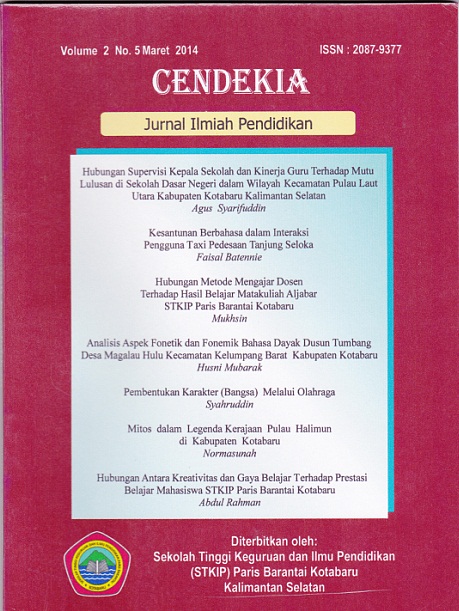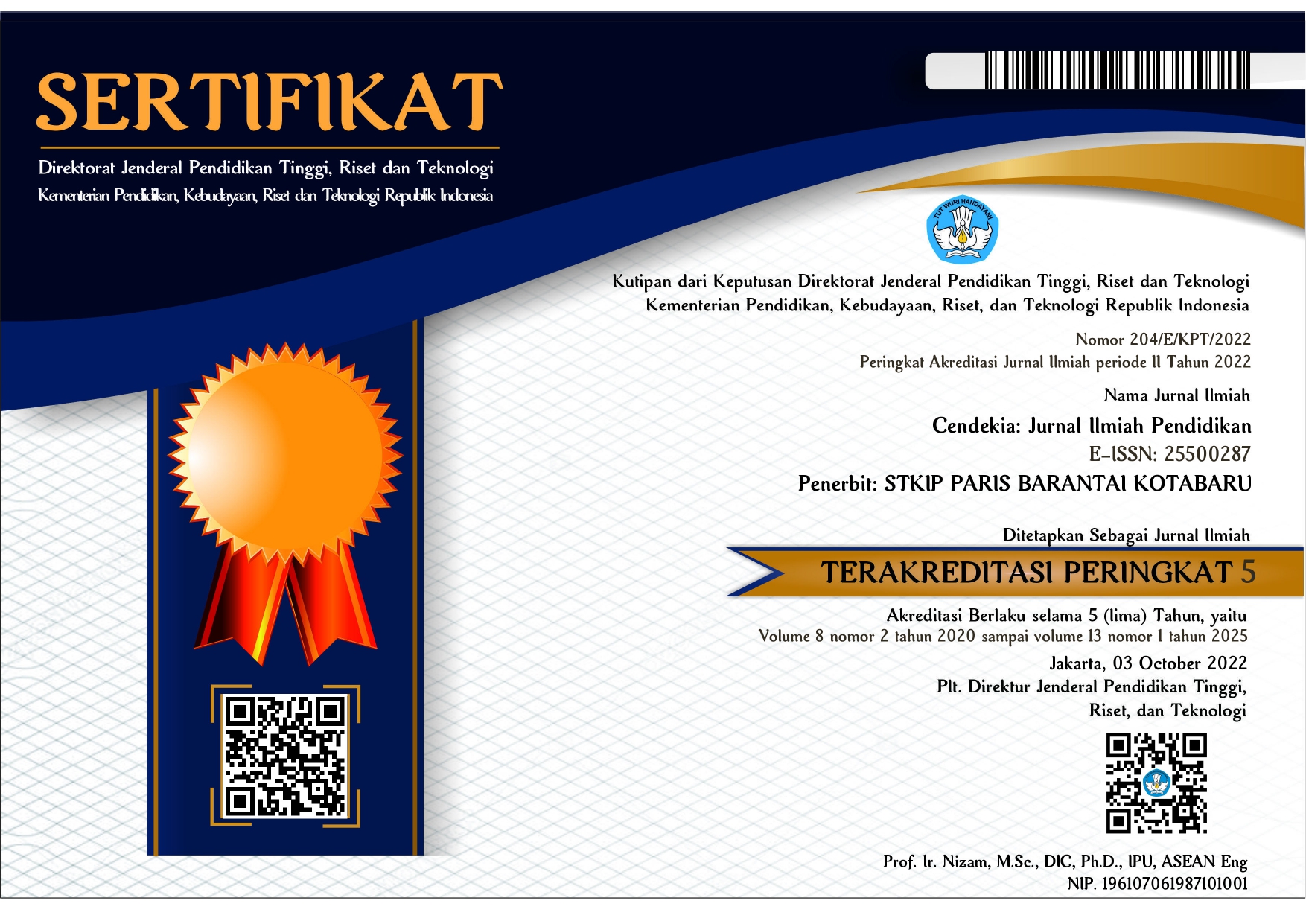HUBUNGAN METODE MENGAJAR DOSEN TERHADAP HASIL BELAJAR MATAKULIAH ALJABAR STKIP PARIS BARANTAI KOTABARU (Studi Kasus)
Abstract
ABSTRACT
The background of this study is that the method of teaching faculty in almost every college has a similar method. On the other hand, most students consider learning mathematics is a difficult subject and the impact on learning outcomes in mathematics, especially algebra course. One of the factors that affect student learning outcomes is a method of teaching faculty. The purpose of this study was (1) to determine learning outcomes algebra course STKIP Paris Barantai. (2) to find a significant relationship between methods of teaching faculty on learning outcomes of the course algebra STKIP Paris Barantai. This study uses a quantitative correlation method, meaning that the researchers collected data by conducting a field survey and then searched the relationship between variables. The sampling technique in this study using simple random sampling. The sample in this study were taken 70% of each class. With a total population of 89 students, so that the sample in this study were 59 students. Collecting data using questionnaires to collect data variable X, while in Y using a data acquisition list of the final value (DPNA) students. Questionnaire instruments before use to obtain objective data, first testing the validity and reliability. Hypothesis testing showed that there was a positive correlation between the methods of teaching faculty to student results, indicated by the Pearson product moment correlation of 0,257 at significance level α = 0,05 was obtained t count equal to 2,015 and t table of 2,002.
Â
Key word: Faculty teaching methods, learning outcomes, Algebra.








